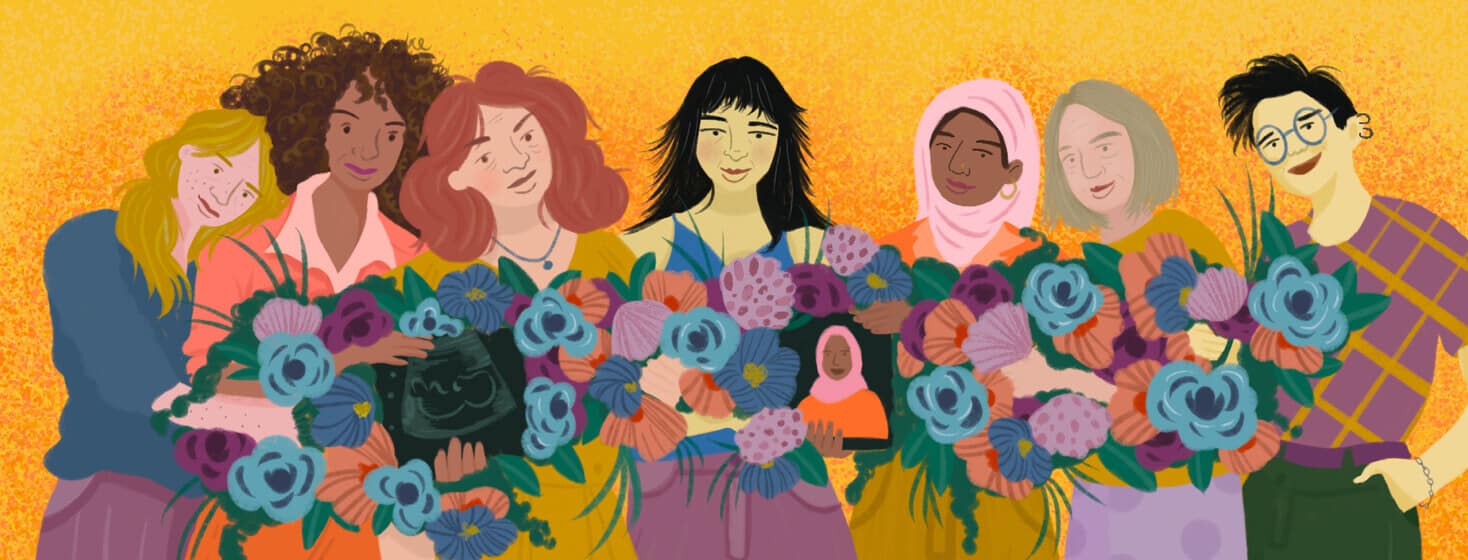Building a Support Network: Finding Your Postpartum Tribe
Navigating the postpartum period can feel like an emotional rollercoaster, with a mix of joy, exhaustion, and unexpected challenges — all of which are typically amplified or stifled due to postpartum depression.
In the now nearly 6 years I've been a mother, I've discovered that building a support network, or a "postpartum tribe," has been essential for my well-being, my confidence as a new parent, and my feelings of hope and stability. Connecting with others who understood my experiences — not just with new motherhood, but in living with postpartum depression — provided comfort, guidance, and a sense of belonging during a time when I often felt isolated.
The importance of a postpartum support network
After the birth of my living daughter, I faced postpartum depression and anxiety, conditions that many new parents experience but that we know relatively few talk freely about. I realized that sharing my feelings with others who had faced similar challenges was not only therapeutic, but also vital for my mental health. The support network I put together offered a variety of things to support me, including:
- Emotional validation: Hearing "I've been there, too" can be incredibly reassuring, especially from someone who really has been where I was at.
- Practical advice: Moms with kiddos a bit older can offer tips on everything from soothing a fussy baby to managing sleep deprivation, all building my confidence as a brand new mom who is also juggling the symptoms of postpartum depression.
- Shared resources: This incredible network also supported me by providing recommendations on quality and pre-vetted information about local support groups, therapists, and other helpful resources.
Finding your postpartum tribe
Building this network might seem daunting, especially when you're juggling the demands of a newborn.
First off, take it 1 step at a time. One mom friend is all you need to start. And maybe she has 1 or 2 friends you get to know. And then, quietly, the network grows.
Here are some steps that helped me connect with others:
1. Join local support groups
Many communities offer postpartum support groups where new moms can meet regularly to share experiences. I attended a few different meetings in my area, where I was introduced to women who were navigating similar paths.
2. Engage in online communities
This was the strategy most available to me with a newborn, and I used it often. Online communities (like this one!) and forums, following certain individuals, searching hashtags on social media, and occasionally joining in an online support group provided me places to connect with other mothers worldwide. I found solace in reading others' stories and sharing my own on platforms like Postpartum.Mental-Health-Community.com.
3. Attend parenting classes or workshops
While many of these are offered during pregnancy, they're a bit harder to find postpartum, but there are plenty of providers and centers that offer parenting classes or workshops for those with new babies. These settings not only provide valuable knowledge, but they also inadvertently offer an opportunity to meet other parents.
4. Reach out to friends and family
Sometimes support comes from those already in your life. By choosing to be vocal and share my postpartum experience with my friends and family, some of them surprised me by checking on me more and/or showing up ready to help in whatever ways I needed, providing unexpected support during that season.
5. Consult healthcare providers
Talk to a midwife, a doula, an obstetrician (OB), or a pediatrician already in your life. They ALL should have information about local resources and support groups, not just for new parents, but specifically for parents who are overcoming postpartum depression. Personally, I asked my doula to connect me with a postpartum support circle, which became invaluable to building my tribe.
Overcoming barriers to connection
It's natural to feel hesitant about reaching out, especially when discussing something as personal as having just given birth, navigating the newborn days, and struggles with mental health. Here are some common barriers and ways I've worked to try to overcome them:
1. Feelings of shame or guilt
Remember, seeking help is a sign of strength, not weakness. Many mothers experience postpartum challenges; you're not alone.
2. Time and energy constraints
Even short, regular interactions can be beneficial. Online groups specifically offer flexibility to connect at your convenience, day or night, without even having to leave your home.
3. Fear of judgment
Choose supportive, nonjudgmental environments. To be honest, this one was the easiest. I've found that most mothers are empathetic and understanding, having faced their own challenges when they were standing where I was.
The impact of a supportive community
Connecting with my postpartum tribe transformed my experience of new motherhood. Sharing my journey, hearing others' stories, and offering support in return created a sense of community that alleviated feelings of isolation. Through these connections, I learned coping strategies, gained confidence in my motherhood, and found a safe space to express and share my emotions.
If you're navigating the postpartum period, I encourage you to seek out and build your support network. Whether through local groups, online communities, or personal relationships, connecting with others can provide the understanding and encouragement that are so essential during this time.
If you've already found success in building a postpartum network through any paths I did not mention, please share in the comments below!
